ESN Blog Reading List
Looking for more good reading on following Jesus on the academic pathway? View other reading lists.
What does it mean to thrive as a faculty member? How do you connect following Christ and your daily work in the university? Explore articles curated just for you below.
Grading as a Spiritual Practice (Scholar’s Compass)
 It's that time of year again: grading time. I'm sure you're familiar with the saying “I teach for free, but I get paid to grade.†You may be procrastinating right now, avoiding those last 27 papers you have to grade. Maybe you're enjoying the clever memes posted by colleagues about student complaints, entertaining typos, or plagiarism. . . .
It's that time of year again: grading time. I'm sure you're familiar with the saying “I teach for free, but I get paid to grade.†You may be procrastinating right now, avoiding those last 27 papers you have to grade. Maybe you're enjoying the clever memes posted by colleagues about student complaints, entertaining typos, or plagiarism. . . .On Submitting Academic Work (Scholar’s Compass)
 I have a love-hate relationship with deadlines. I am a procrastinator. I'm sure many of you can relate. I don't procrastinate because I'm lazy or because I don't want to work hard. It's a crutch directly related to perfectionism. My work will never be as good in reality as it remains in my head. So I avoid the inevitable disappointment that comes when the writing exists.
I have a love-hate relationship with deadlines. I am a procrastinator. I'm sure many of you can relate. I don't procrastinate because I'm lazy or because I don't want to work hard. It's a crutch directly related to perfectionism. My work will never be as good in reality as it remains in my head. So I avoid the inevitable disappointment that comes when the writing exists.Academic Conferences and Spiritual Practice
 Commencement is over. Grading is complete. Perhaps you have even taken a few days off to mark the end of the spring term. And now it's summer.
Commencement is over. Grading is complete. Perhaps you have even taken a few days off to mark the end of the spring term. And now it's summer.Strength for the Journey, Part 1
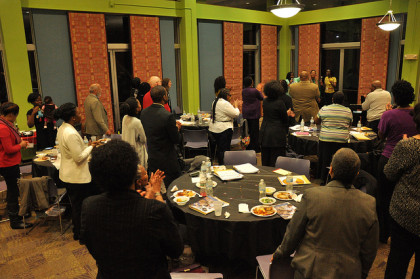 ESN is delighted to share wisdom on continuing in the journey of higher education from Dr. Claudette Ligons, and to highlight the work of InterVarsity's Black Scholars and Professionals (BSAP). BSAP, a national ministry within InterVarsity, recently hosted its fifth annual conference in Cambridge, MA. Dr. Ligons spoke on persevering and growing in the academic life, a topic very relevant to emerging scholars.
ESN is delighted to share wisdom on continuing in the journey of higher education from Dr. Claudette Ligons, and to highlight the work of InterVarsity's Black Scholars and Professionals (BSAP). BSAP, a national ministry within InterVarsity, recently hosted its fifth annual conference in Cambridge, MA. Dr. Ligons spoke on persevering and growing in the academic life, a topic very relevant to emerging scholars.Planning for Victory, Prayerfully (Strength for the Journey series, Part 2)
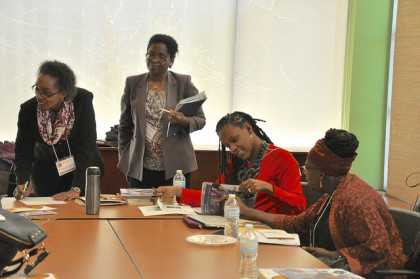 Let's begin with Prayerfully Planning for Victory. If you are convinced that your studies and your career are aligned with God's purpose, you are starting in a place of victory. Knowing that will enhance your faith as you pray for His guidance and His support in other areas of your life.
Let's begin with Prayerfully Planning for Victory. If you are convinced that your studies and your career are aligned with God's purpose, you are starting in a place of victory. Knowing that will enhance your faith as you pray for His guidance and His support in other areas of your life.Reducing Your Load for Strength Enhancement (Strength for the Journey series, Part 3)
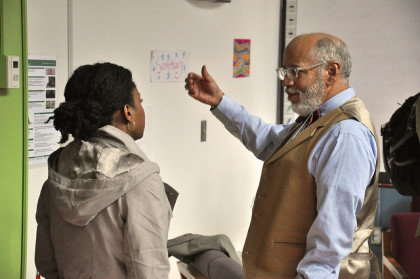 At Texas Southern University, it is my privilege to teach and advise doctoral students in the Department of Curriculum and Instruction. When they complete the coursework, I shepherd them through the dissertation process.
At Texas Southern University, it is my privilege to teach and advise doctoral students in the Department of Curriculum and Instruction. When they complete the coursework, I shepherd them through the dissertation process.Celebrating Small Victories (Strength for the Journey series, Part 4)
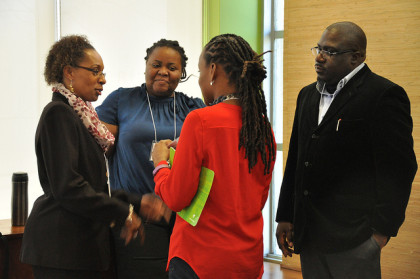 ESN is delighted to share wisdom on continuing in the journey of higher education from Dr. Claudette Ligons. Dr. Ligons has the distinction of a 100% graduation rate among the Ed.D. students she has supported through the dissertation process at Texas Southern University. The concluding post in a series of four.
ESN is delighted to share wisdom on continuing in the journey of higher education from Dr. Claudette Ligons. Dr. Ligons has the distinction of a 100% graduation rate among the Ed.D. students she has supported through the dissertation process at Texas Southern University. The concluding post in a series of four.Processing your PhD: the first of a short series on life after graduate school
 You stand in the Quad, surrounded by empty chairs and the sound guys talking down the stage. It's an early June day in Seattle at the University of Washington. A cool wind is blowing paper programs lazily through the air.
You stand in the Quad, surrounded by empty chairs and the sound guys talking down the stage. It's an early June day in Seattle at the University of Washington. A cool wind is blowing paper programs lazily through the air.Processing your PhD: on teaching
 Almost by their nature, large research universities don't necessarily prime their PhD students and candidates for a teaching-oriented academic career.
Almost by their nature, large research universities don't necessarily prime their PhD students and candidates for a teaching-oriented academic career.Processing your PhD: a further meditation on done-ness
 My friend Nate recently asked me what I'd do next. “What do you mean, ‘next'?†I replied.
My friend Nate recently asked me what I'd do next. “What do you mean, ‘next'?†I replied.Processing your PhD: on next-ness
 As a young faculty person, with all the anxieties that are part of that identity, that quiet does tend to bring in some of its own challenges, however. It might even go to waste, slipping away into the voracious demands of the calendar. There's a refrain of next-ness, for lack of a better phrase. What's next, indeed?
As a young faculty person, with all the anxieties that are part of that identity, that quiet does tend to bring in some of its own challenges, however. It might even go to waste, slipping away into the voracious demands of the calendar. There's a refrain of next-ness, for lack of a better phrase. What's next, indeed?Giving Repetitive Courses A Fresh Look
 When I started my career in teaching six years ago I knew I was finally living my God-given purpose in life.
When I started my career in teaching six years ago I knew I was finally living my God-given purpose in life.Collegial Connections, Week One: Hallway Connections
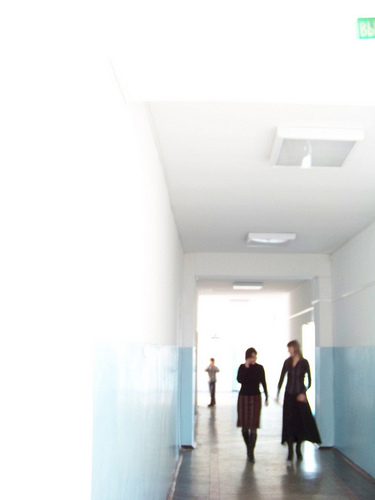 Want to deepen your conversations with academic colleagues? Check out this new series by a communications professor on connecting with colleagues.
Want to deepen your conversations with academic colleagues? Check out this new series by a communications professor on connecting with colleagues.Collegial Connections, Week Two: Meeting Connections
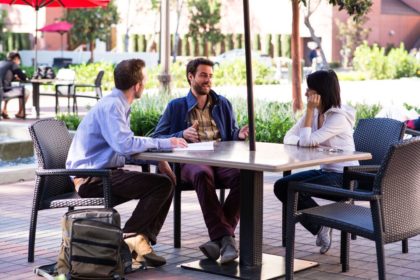 Meetings can be a chance to forge real connections with your colleagues. Renee Bourdeaux explains how.
Meetings can be a chance to forge real connections with your colleagues. Renee Bourdeaux explains how.Collegial Connections, Week Three: Maintaining Connections
 Relational Maintenance Theory (Canary & Stafford, 1992; Stafford, 2011; Stafford & Canary, 1991; Stafford, Dainton, & Haas, 2000) explains that there are seven maintenance behaviors (positivity, understanding, assurances, network, sharing tasks/activities, relationship talks, and self-disclosure) that are used to sustain various types of relationships. For friendships, though, start by focusing on these two maintenance behaviors: sharing tasks/activities and self-disclosure.
Relational Maintenance Theory (Canary & Stafford, 1992; Stafford, 2011; Stafford & Canary, 1991; Stafford, Dainton, & Haas, 2000) explains that there are seven maintenance behaviors (positivity, understanding, assurances, network, sharing tasks/activities, relationship talks, and self-disclosure) that are used to sustain various types of relationships. For friendships, though, start by focusing on these two maintenance behaviors: sharing tasks/activities and self-disclosure.New ESN Reading Lists: Career Stages & Four Faculty Loves
 New ESN Reading Lists Are you looking for a quick guide to some of our key starting point resources here at the ESN blog? We’ve designed a resource page that offers some great starting points for each career stage, and for InterVarsity’s Four Faculty Loves. Browse these if you’re looking for individual reading or small group conversation ...
New ESN Reading Lists Are you looking for a quick guide to some of our key starting point resources here at the ESN blog? We’ve designed a resource page that offers some great starting points for each career stage, and for InterVarsity’s Four Faculty Loves. Browse these if you’re looking for individual reading or small group conversation ...
View additional reading lists under the Career Stages category:
